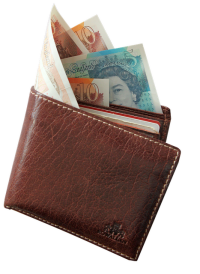Mortgage

A mortgage is usually used as a guarantee of the performance of monetary obligations under a contract.
Thai law provides a limited list of types of collateral and alternative options for protecting creditor rights. The main ones are:
1. Security without transfer of property.
The mortgage agreement provides the morgage holder with the right to dispose of the property of the mortgagor, but does not provide the right to own this property. Simply put, the property physically remains with the debtor, but if the debtor does not pay the debt, the creditor has the right to sell the property and receive debt compensation. The mortgage agreement must be drawn up in writing, contain a description of the property and must be registered with the land department.
A land mortgage agreement does not apply to constructions built on the land after the conclusion of such agreement, unless otherwise specified in the mortgage agreement. Also, if a mortgage agreement is drawn up for a construction built on the land that does not belong to the debtor, then the mortgage doesn't apply on the land by default, unless otherwise specified in the contract.
Mortgage holders can be both individuals and companies, Thais and foreigners.
The subject of the pledge can be equipment as well but only after the ownership registration. For example, factories can get a loan with the pledge of equipment after it is registered with the Department of Industry. Equipment pledge shall be also registered with the competent authority.
2. Security deposit
Movable property can also be pledged by physically transferring property to the pledge holder, with whom it will remain until the debtor fulfills its debt obligations. Obligations of the debtor will be deemed fulfilled at the moment when the creditor returns the property to the debtor. If the debtor cannot pay the debt to the creditor, the pledged property must be sold in a public auction.
3. Lease with subsequent redemption.
Movable property may be leased with subsequent redemption. In this case, the contract indicates the date and amount of the lease payments and the property shall be transferred to the lessee after the last lease payment. The contract does not need to be registered and can be made in simple writing. The landlord may terminate the contract if the tenant has not paid two payments in a row. If such an agreement is concluded to rent a car or motorbike, the agreement may be terminated if three payments in a row are not paid.
4. Conditional sale.
This is an ordinary contract of sale but subject to the delay of the transfer of ownership. The right of ownership passes to the buyer after full payment for the property is made. The buyer does not use the property until the transfer of ownership (it is not a rental).
For all questions regarding the conclusion of cash loans, installment payments and registration of mortgage, please call: + 6687-348-57-03.

 English
English
 Русский
Русский